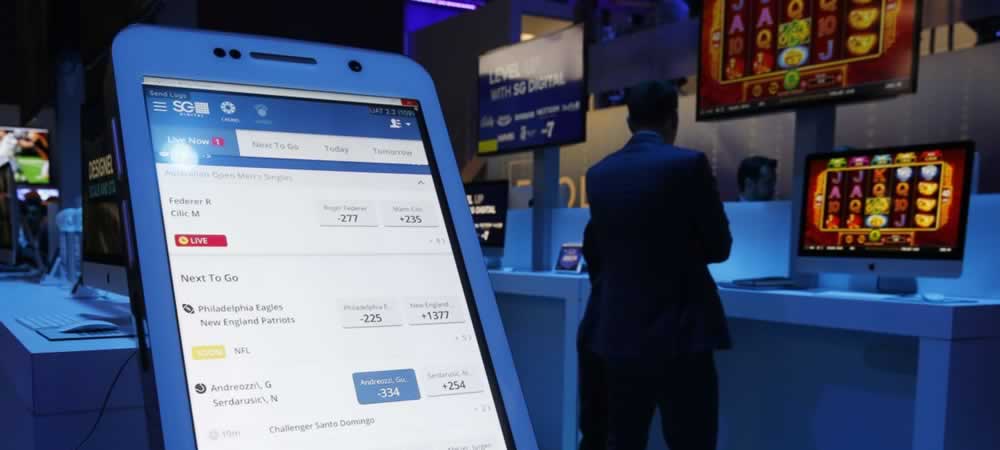- Sports betting revenue in New York could exceed $1 billion with mobile wagering.
- Annual revenue is projected to drop to $300 million should mobile betting no be approved.
- Governor Cuomo and legislators are unsure if a constitutional change is needed to add mobile wagering.
ALBANY, N.Y. – After a public hearing last week, the mobile sports betting bill for New York is making headway.
The Senate’s Racing, Gaming, and Wagering Committee was responsible for reviewing SB 17 and passed it with a unanimous vote.
Senate Bill 17 will now advance to the Senate Finance Committee but it is unlikely to remain as-is moving forward.
Many of the committee members were uncertain why the mobile betting platform should be accessible only from the commercial and tribal casinos. Leaving the racetracks, OTB locations, and racinos off of the list removes many New Yorkers’ access to the system.
Additionally, problems for this bill arose from Governor Cuomo, who believes adding mobile betting to the previously approved measures will require a constitutional amendment.
The Addition Of Mobile Betting In New York
Senate Bill 17 would expand the 2013 voter referendum allowing mobile betting in addition to land-based.
During the committee hearing, President & COO of FanDuel Kip Levin expressed to Addabbo that nearly 25% of all New Jersey mobile sports betting revenue comes directly from New Yorkers crossing the border to bet. New York legislators want to start collecting on the missed revenue opportunity sooner than later.
“There is so much revenue that could be coming to this state that is going to other states,” said committee member Senator James Gaughran (D- Huntington).
Estimations from Oxford Economics have New York receiving a $14 billion handle – more than three times that of Nevada’s. However, without mobile wagering, this number drops to $5 billion.
With a $12 million licensing fee and a 12% tax rate on mobile betting, revenue numbers could reach as high as $1 billion. But annual revenue could drop to only $300 million, should the state be subject to land-based sportsbooks only. For this reason, legislators, such as bill sponsor Joseph Addabbo Jr. (D- Howard Beach), are not wanting to table this issue.
“This is a puzzle that the pieces are still missing,” Addabbo said. “We need to move forward today in order to keep this momentum going.”
The missing puzzles pieces Addabbo refers to are the non-inclusions of the horse racing industry.
New York Mobile Betting Moving Forward
Senator Daphne Jordan (R- Halfmoon) along with Senator Pam Helming (R- Canandaigua) were the most vocal about the operators left off of the sports betting inclusion list.
“It kills me in many ways to vote ‘aye’, but I believe that it’s the right thing to do to move the conversation forward and to make sure New York gets our fair share of revenues,” said Helming.
Both Jordan and Helming represent districts that have gambling facilities unable to offer mobile sports betting as it stands. If the establishments are not capable of accepting mobile betting, Helming would like to see financial assistance provided to the racinos in her area.
“To say you can help them later, I’m just not sure how because what share is left for them at that point when everything is up and running, said Jordan. “[We need] a plan to include those other entities and not three years from now.”
Addabbo believes the horse racing industry will likely be added back to the measure, once Governor Cuomo determines whether a constitutional change is needed or not.
“I’m hopeful that in the end, we have all the pieces in place and it forms a perfect, inclusionary picture where we have now maximized our potential revenue, educational funding, job security, and job creation,” said Addabbo.
Advertising Disclosure
In order to provide you with the best independent sports betting news and content LegalSportsBetting.com may receive a commission from partners when you make a purchase through a link on our site.
News tags: New York | NY SB 17 | sports betting

After spending time scouting college basketball for Florida State University under Leonard Hamilton and the University of Alabama under Anthony Grant, Michael started writing focused on NBA content. A graduate of both schools, he now covers legal sports betting bills, sports betting revenue data, tennis betting odds, and sportsbook reviews. Michael likes to play basketball, hike, and kayak when not glued to the TV watching midlevel tennis matches.



 College Football Betting
College Football Betting Best Online Sports Betting
Best Online Sports Betting Best Legal NFL Betting
Best Legal NFL Betting States With Legal Sports Betting
States With Legal Sports Betting Sports Betting Events
Sports Betting Events




